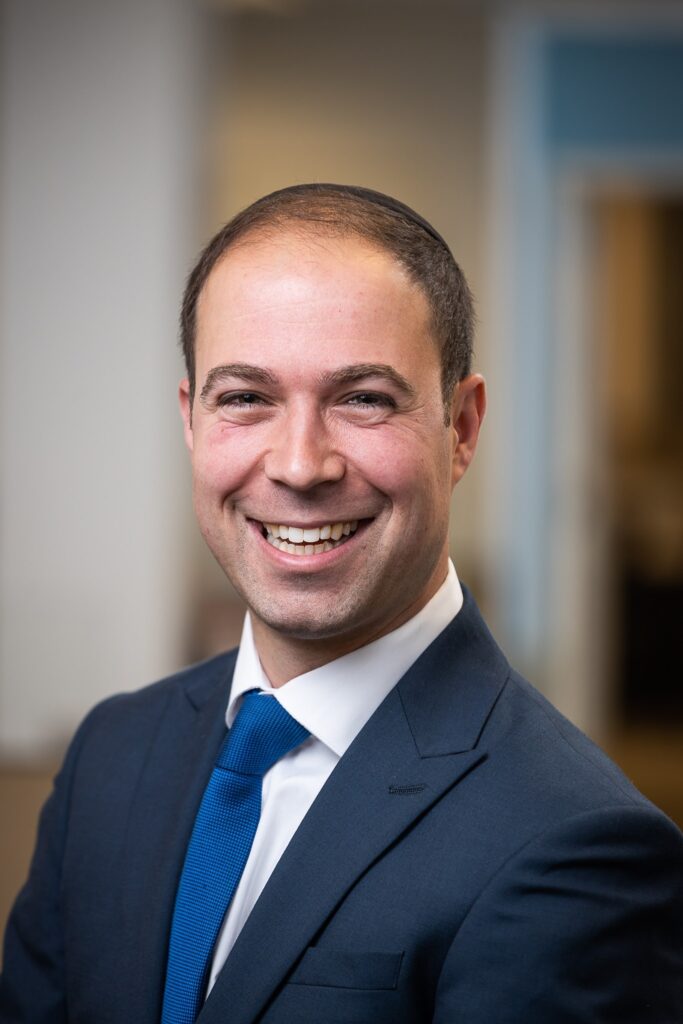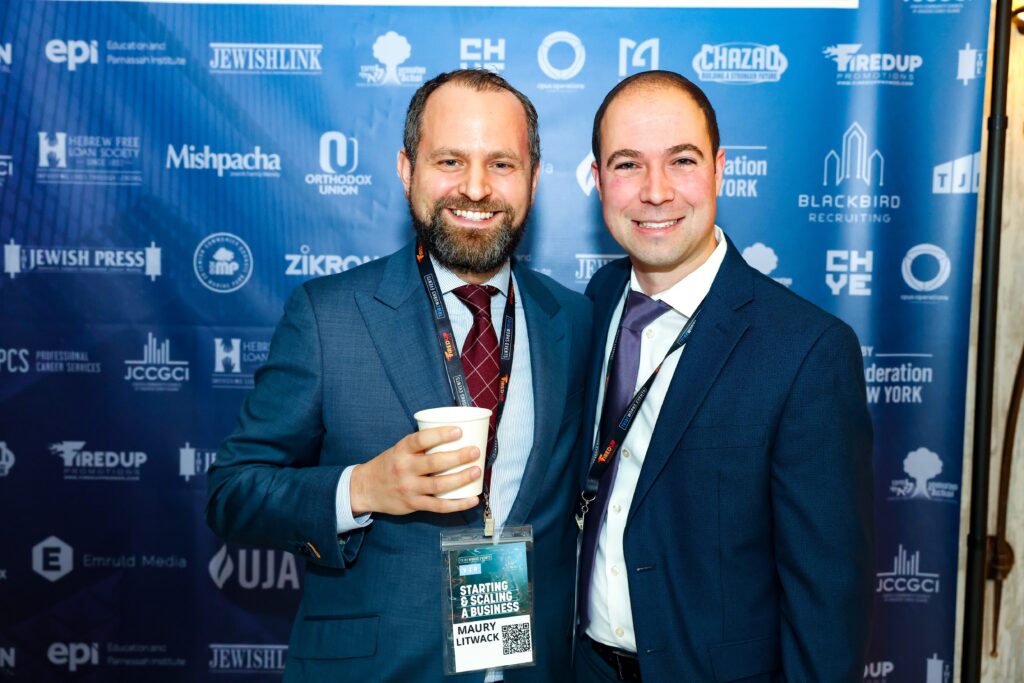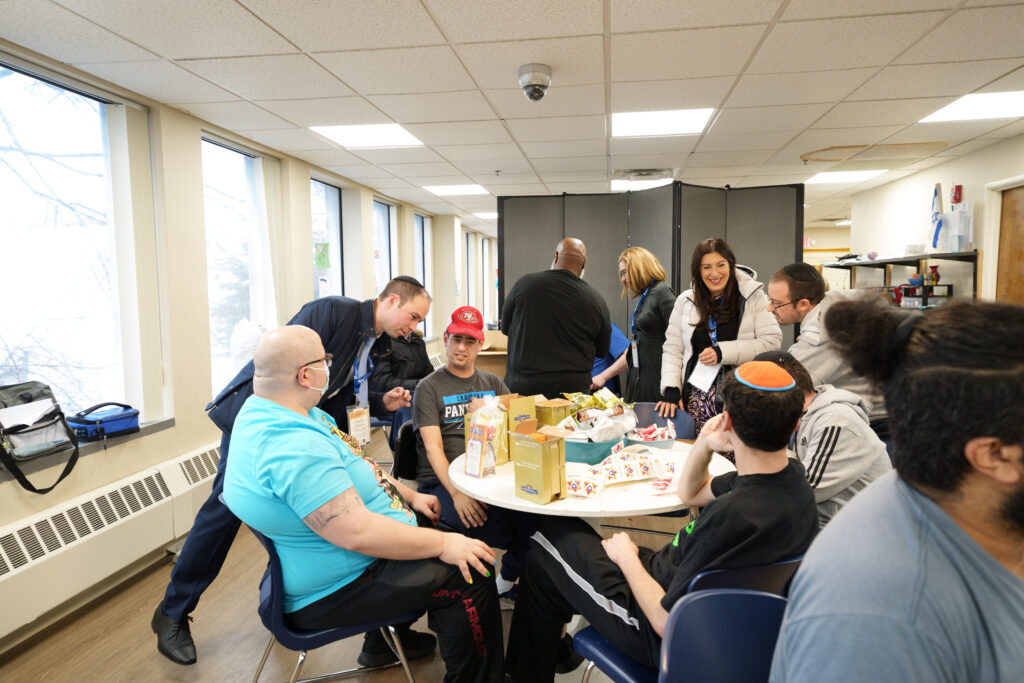 Architecture – that was the career Rabbi Simon Taylor was working toward when he decided he’d rather help build the Jewish community than houses.
Architecture – that was the career Rabbi Simon Taylor was working toward when he decided he’d rather help build the Jewish community than houses.
Growing up in London, England, Rabbi Taylor’s parents, both attorneys, encouraged their children to pursue not just college degrees but clear professional pathways. But in the midst of his university studies, Rabbi Taylor felt pulled elsewhere.
“I was coming off two years of yeshiva in Israel, and I felt inspired to teach Judaism on different college campuses across Northern England, even while I myself was in college,” explained Rabbi Taylor. “When I saw the difference I was making and the impact my informal teaching was having on others, I was hooked. I knew I needed to transition into this field.”
It helped that Rabbi Taylor had also grown up observing his parents’ dedication to their community by serving on different boards and volunteering for different communal organizations. (It must have made an impression – Rabbi Taylor and his three siblings are all involved in communal roles.)
As word of Rabbi Taylor’s warmth and ability to educate and inspire teens and young adults spread, he fielded many job offers in the realm of Jewish outreach and education.
From directing London schools for Aish UK to serving as a chaplain in the British Armed Forces and providing pastoral care to teenagers in the Army Cadet Force, Rabbi Taylor was eventually recruited by NCSY to direct New England NCSY.
Rabbi Taylor and his wife, Leanne, moved their young family across the pond to Boston, where they spent four years before moving to New York, where Rabbi Taylor helped develop and grow NCSY’s largest demographic.
And then Covid-19 hit and turned many an organization upside down, including the OU, which had been gearing up for another summer serving thousands of Jewish teens through its NCSY programs.
“OU’s leadership realized the summer was either going to be a huge challenge or a huge opportunity,” said Rabbi Taylor.
The OU pivoted swiftly to launch Project Community, engaging teens, college students, and Yachad members in 30 cities in volunteerism, virtual and in-person Jewish learning, and recreation within pandemic-recommended guidelines. And they tapped Rabbi Taylor to head this unprecedented effort.
recreation within pandemic-recommended guidelines. And they tapped Rabbi Taylor to head this unprecedented effort.
“Baruch Hashem, it was a huge success, with over 4,000 participants and we were featured on multiple news channels,” says Rabbi Taylor. “I think the OU got a sense of reaffirmation of what they could do in the community to effect change on a national level, and also how I could help play a role in that.”
The OU asked Rabbi Taylor to head a new department they were creating and, in March 2021, he officially became the OU’s National Director of Community Projects and Partnerships.
Overseeing a staff of five, Rabbi Simon assesses the needs of the Orthodox Jewish community and helps create and implement initiatives meant to alleviate and resolve those needs. Recent projects include Living Smarter Jewish (LSJ), an all-in-one resource dedicated to improving the financial literacy and unique financial needs of Orthodox Jews, and Generation Aleph, a national research-based program to strengthen the critical parent-child relationship.
“We make sure our initiatives are data-driven so we can track the impact our work is having,” says Rabbi Taylor. “We work with the OU’s Center of Communal Research and conduct surveys and longitudinal studies, so we can ensure our efforts are really effecting change.”
 And, like Covid, new crises emerge and demand shifting priorities. When Russia invaded Ukraine and threw the region into turmoil, Rabbi Simon headed the OU’s historic emergency response to the humanitarian crisis.
And, like Covid, new crises emerge and demand shifting priorities. When Russia invaded Ukraine and threw the region into turmoil, Rabbi Simon headed the OU’s historic emergency response to the humanitarian crisis.
Working with OU lay leaders, Vaad Hatzalah, and Chabad, Rabbi Simon oversaw this multifaceted effort to streamline the help being delivered to the Ukrainian region, a herculean initiative that required a weeklong mission to Eastern Europe, sleepless nights, and constant lessons in overseas coordination. In total, the OU donated over 200 tons of food and medicine and helped raise $6 million, much of it through its innovative crowdfunding platform.
“It was a huge effort that involved many collaborations with many different organizations and overseas partners,” says Rabbi Taylor. “That our efforts were successful is a real testament to the resources and powerful network of the OU.”
It is that network that Rabbi Taylor credits with being a changemaking agent in the North American Orthodox Jewish community and internationally.
“To achieve that kind of change, you need an organization with breadth and the trust of the community,” says Rabbi Taylor. “Few places can do that like the OU can.”
The words of this author reflect his/her own opinions and do not necessarily represent the official position of the Orthodox Union.

